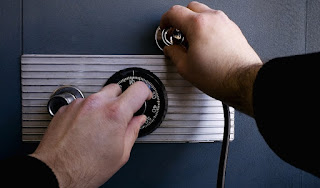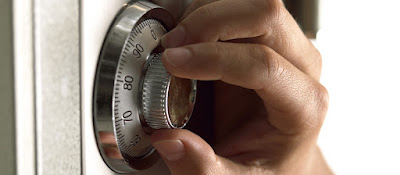Your Ultimate Guide to Hiring a Qualified Safe Technician
Installing a safe in your home or office is a smart move to keep your valuables secure. However, if you encounter any issues with the safe in the future, you'll need a qualified and reliable safe technician to repair it. In this ultimate guide, we will discuss everything you need to know when hiring a safe technician.
Hire a licensed safe technician
When hiring a safe technician, it's important to make sure that they have the proper credentials and certifications. You should ask for their license number and check with your state's licensing board to make sure it is valid. A bonded and insured technician is also highly recommended as this ensures that if anything happens during the service call, you can get reimbursed by their insurance company.
Another way to ensure quality service is by looking at how much experience your potential technicians have in servicing safes of similar size and complexity as yours (if applicable). If possible, ask for references from previous clients so that you can talk with them directly about their experience working with this particular technician before deciding who will do the job for you!
Make sure that the technician is bonded and insured
You should be sure that the technician is bonded and insured. A bond is a guarantee from a third-party source that a company or individual has sufficient funds to cover any losses incurred by their clients, so if something goes wrong with your safe, you won't be left holding the bag. The technician should be able to provide proof of his or her license and insurance before starting work on your safe; this way, if anything happens while they're inside it (and believe me: things do happen), there's no risk of losing money in legal fees or damages caused by an uninsured technician not being able to pay out on claims made against him/herself/the company he/she represents
Ask for references and check them out
When you're interviewing potential technicians, it's important to ask for written references. In addition to checking out the technician's work history, call each reference and ask about their experience with the company. Ask them how they would rate the quality of the service they received and whether or not they would recommend them again. You should also inquire about price and professionalism: Was there anything that caused concern or disappointment?
Interview several technicians before you make a decision
When interviewing technicians, ask for references and check them out. Also, ask about their experience with safes of your type and with your specific safe. If possible, try to get a feel for how they approach problems. Ask them if they have worked on similar problems before and what their solutions were; this will help you gauge their problem-solving ability and whether or not they are familiar with common issues that can arise when working on older safes.
Finally, be sure to ask about the manufacturer of your safe so that you know exactly which parts might need replacing during repairs (and how much this might cost).
Upfront and Transparent Pricing
From the outset, you should expect to pay for a safe technician's time. The fees vary depending on your location and the size of your safe. You may also be charged extra if there's damage that needs to be repaired or replaced.
You should ask questions about how much it will cost before agreeing to any repairs--and don't be afraid to negotiate! If you feel like the cost is too high and there isn't enough value in the work being done, ask for an alternative solution that doesn't involve spending money unnecessarily.
Conclusion
If you want to keep your family and property safe, it's important that you hire a qualified safe technician. A professional will help you choose the right safe for your needs and install it securely in your home or business.


Comments
Post a Comment